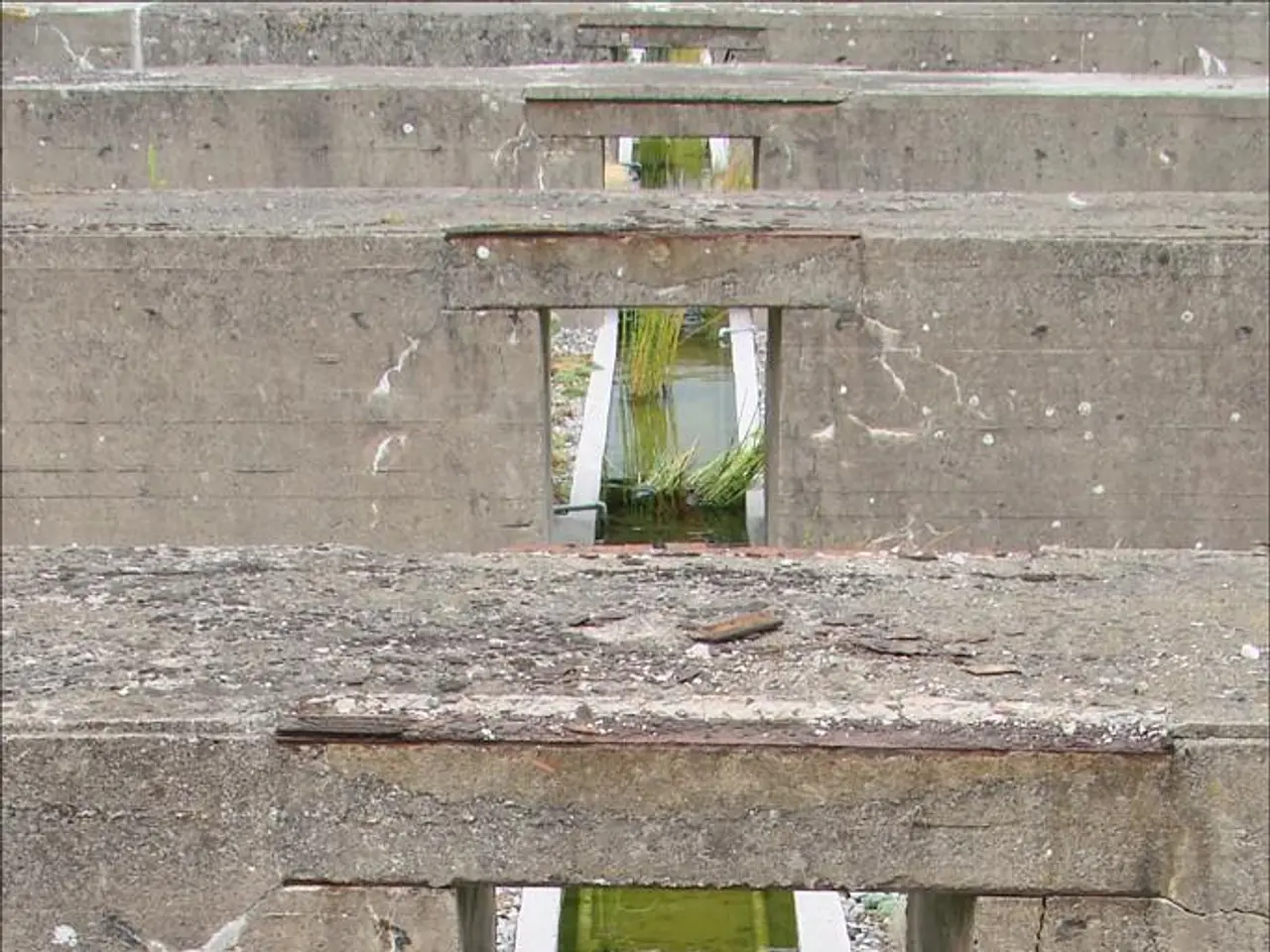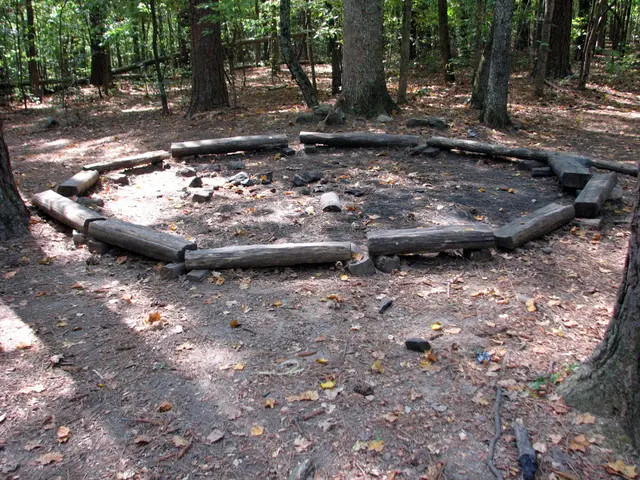Determining the Fate of Underground Water Reserves
=========================================================================================
In the picturesque region of Bavaria, a significant focus on water management is unfolding, with the proposed Watercent Act set to prioritise water extractions for public drinking water supply over other uses. The Act, slated for debate in the Bavarian Landtag after the summer break starting in early October, is expected to bring about changes in the way water is extracted and used in the region.
One of the areas set to see changes is the Altmühltal, which aims to extract up to 200,000 cubic meters per year from the iron sandstone in the future with the newly constructed wells for extraction. Notably, the company Altmühltal has decided to primarily draw groundwater from the iron sandstone layer in Treuchtlingen for its mineral water and other beverages production. Currently, the company extracts around 238,000 cubic meters per year from the covered sandstone Keuper.
The Watercent Act mandates a uniform fee of ten cents per cubic meter for groundwater extraction in Bavaria. This fee will likely affect all entities involved in groundwater extraction, including companies like Altmühltal.
However, the Act's impact on commercial water extraction regulations and public water suppliers in towns like Treuchtlingen is not yet clear. While water protection areas are designated and established by district administrative authorities to protect public water extraction sources such as wells and springs in Bavaria, specific new proposals or changes affecting commercial users like Altmühltal are not detailed in the available information.
Other water suppliers, such as the cities Weißenburg, Alesheim, and Ettenstatt, and associations like Burgsalach Juragruppenwasserversorgung, Pfofeld group, and Gnotzheim group, also draw water from the covered sandstone Keuper. The Gnotzheim group plans to extract up to 285,000 cubic meters per year (previously 325,000) from the covered sandstone Keuper in the future.
The overexploitation of the reservoir in Treuchtlingen, according to the Water Management Office in Ansbach, requires all parties involved to consume less water, identify savings potential, and consider alternative sources. The Nature Conservation Union (BN) is against the exploitation of water reserves for commercial purposes, specifically in Treuchtlingen.
It is essential to note that not all applications for future water extractions in Treuchtlingen have been received yet. Once the applications are reviewed, the current legal situation will be considered for decisions on future water extractions in Treuchtlingen.
For precise and up-to-date details on proposed regulatory changes, particularly concerning commercial water extraction and their effects on firms like Altmühltal or Treuchtlingen’s public water suppliers, consulting Bavarian government announcements or local water authority publications would be necessary.
- The Watercent Act, set to debate in the Bavarian Landtag, will not only affect the way water is extracted and used in the region, but it will also implement a uniform finance policy for groundwater extraction, potentially impacting companies like Altmühltal that primarily draw groundwater for their business operations.
- Considering the concerns raised by the Nature Conservation Union (BN) about overexploitation of water reserves for commercial purposes, especially in Treuchtlingen, there is a need for investment in scientific research dedicated to environmental-science, focusing on climate-change and its impact on water resources, to provide viable solutions for sustainable water management in Bavaria's industry and business sector.
- As the regulatory landscape surrounding commercial water extraction in Bavaria evolves, it is crucial for firms like Altmühltal and public water suppliers in towns, such as Treuchtlingen, to have a clear understanding of economic and social policy changes that may influence their operations, while advocating for sustainable water-use practices in alignment with the principles of environmental-science to ensure long-term prosperity for Bavaria's society and environment.






